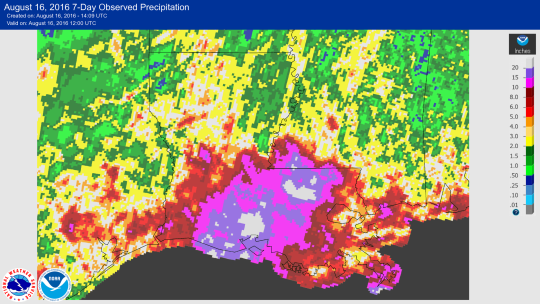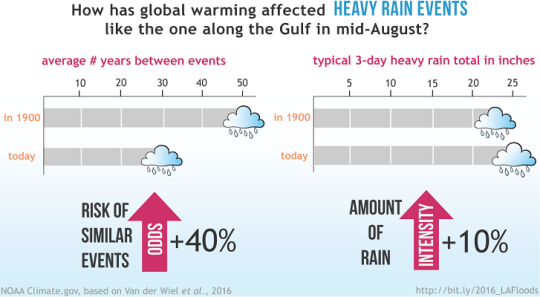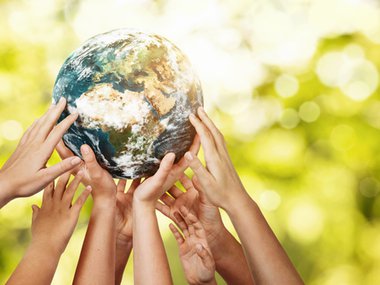Question Your World: Is Climate Change Impacting Extreme Weather?
Anytime there’s a hurricane, heat wave, or any other extreme weather event you’ll hear people ask, “Is this because of climate change?” While natural occurrences and extreme storms have been happening for quite some time now, new scientific processes are allowing us to see how much human-caused climate change factors into these weather events. A recent storm in Louisiana helped climate scientists begin to answer a pretty big question: Is climate change impacting extreme weather?
First of all we must keep in mind that some of our knowledge about the atmosphere dates back to the early 1800′s. In fact, since the 1830′s, scientists have known that a warmer atmosphere holds more water. This is best explained through the Clausius-Clapeyron relationship. Naturally, both meteorology and climatology were impacted by this equation. Since then this knowledge has been a staple in the two disciplines. The application of this equation comes in very handy when considering today’s atmospheric landscape.
Modern scientists have known that human emissions of heat trapping gases have been making global temperatures rise. So, does the Clausius-Clapeyron relationship hold here as well? Does our warming atmosphere hold more water? Does this mean that our warmer atmosphere would impact extreme rains?

In August of 2016, scientists had a chance to study this for themselves. A large rainfall and subsequent flooding took place in coastal Louisiana. Using historical weather data and state-of-the-art-computer technology, scientists were able to look further into this extreme weather and warmer atmospheric relationship. The data showed that the devastating floods of coastal Louisiana were made 40% more likely and 20% more intense than they would have been in the past century. The human impact on the atmosphere has altered the balance that once existed. Along with that comes a bevy of natural consequences, such as extreme storms and flooding.

The damage has been done and restoration work is now under way, but the knowledge learned from this study is going to be of much help. Understanding more about human impacts on the climate now will help cities better plan for these weather events in the future. Scientists have been collecting information like this for years to help cities and citizens become more resilient to these extreme weather events.
Resiliency as an immediate response to an extreme weather event could include making sure that the city has infrastructure to help mitigate the damage, provide citizens with services to ensure safety and sanitation, and also encourage communities to plan for how to react to these events. A long term approach to resiliency is important as well. Long term approaches could include planning where to buy property, deciding which vehicles you purchase, encouraging community dialogue about climate change, supporting more locally sourced food items, and beyond. There is a large set of options for those seeking ways to become more resilient to the impacts of climate change.
From the 1830′s to 2016, scientists have been studying our world to better understand how the system works, where we fit into it, and how we can learn more about nature. Remember folks, knowledge is power and it’s most certainly renewable!


